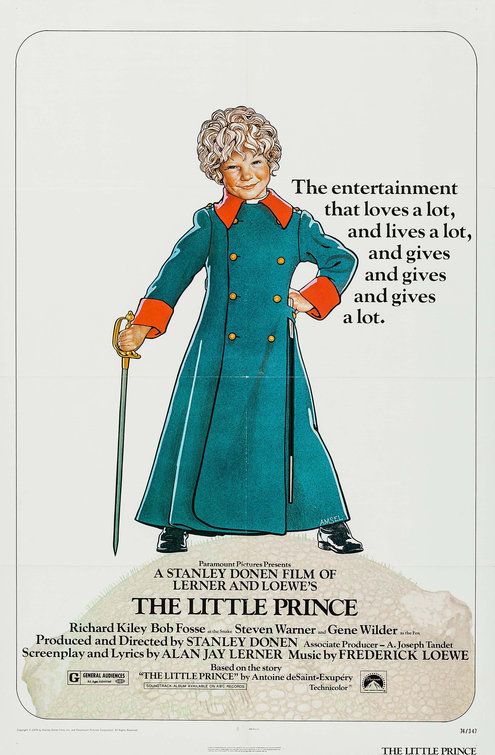"They are in a great hurry," said the little prince. "What are they looking for?"
"Not even the locomotive engineer knows that," said the switchman.
And a second brilliantly lighted express thundered by, in the opposite direction.
"Are they coming back already?" demanded the little prince.
"These are not the same ones," said the switchman. "It is an exchange."
"Were they not satisfied where they were?" asked the little prince.
"No one is ever satisfied where he is," said the switchman.
And they heard the roaring thunder of a third brilliantly lighted express.
"Are they pursuing the first travelers?" demanded the little prince.
"They are pursuing nothing at all," said the switchman. "They are asleep in there, or if they are not asleep they are yawning. Only the children are flattening their noses against the windowpanes."
"Only the children know what they are looking for," said the little prince. "They waste their time over a rag doll and it becomes very important to them; and if anybody takes it away from them, they cry..."
"They are lucky," the switchman said.
-- The Little Prince, by Antoine de Saint Exupery
--
As I've been making my way through this brilliant book, I've been wondering if anyone else thought to adapt it for the stage. Of course, someone else has. Of course, a group of those someones made it a musical. Of course, it's also a film.
A famous film. Who knew. If your best thoughts aren't stolen by the ancients, then at least they are stolen by pioneers of the entertainment industry.
Still: it would make a wonderful children's play. If you could just get some widely focused spotlights on the stage, you could do the different planets very nicely.
--
The children's play that I am actually working on, Wait! I Want to Tell You a Story, continues to go well. I returned to the daycare today. I had each kid read two different characters. About half of them can read, and half of the ones who can do so haltingly, with an unnerving staccato like someone laying heavy bricks and wearing clicky shoes,--so there's that obstacle. But at least a few of them can at least read well, and to them I've given the choice roles, the ones with changing intentions, more lines.
Between readings, a skeptical child asked at my elbow: "Have you ever directed anything before?"
"Yes," I said. "I've written some plays, too."
He didn't seem impressed. "Huh."
Kid'll be on some theatre board someday.
--
We've plowed through auditions at The Children's Theatre. Callbacks end tonight, which is devoted entirely to Disney's The Jungle Book Kids.
It's a subdued spectacle. Kids show up with their parents and the downstairs heats up, they check in at my table and ask funny questions and the parents wince or chuckle and tow their offspring toward a chair. They put on expensive shoes with the seriousness and familiarity of monks at prayer. They go into the room sweating and emerge smiling or on the verge of tears. They know what they have done. The parents know, they know the body language of talented children, and even if it is not their child sobbing in the corner, their eyebrows dip and their mouths open with sadness. This is completely different from adult auditions. Adult actors have learned to trap all responses inside their chosen outfits, behind trim binders full of material, under heads of immaculate hair. Adults know not to ask questions lest, and they watch these emotive children fall from professionalism with all the grace of tipping file cabinets. Adults hang themselves on the walls, impassive portraits waiting their turn to be seen, appraised, and passed by. Adults understand economy of scale and opportunity cost--they scrutinize constantly: If I don't get this, I can go home early, at least. My November will be free and I can visit my cousin. I can audition at another place next week. I don't know or care where my next job comes from--I just want to get there.
But for the kids, this is it. Here, now. Their hopes are raised, and they will be dashed before evening's end, and they are the only ones who know it, because they are the only ones who want it badly enough.
--
If you told an adult, after a poor audition, that they had to buy new expensive shoes and work tirelessly for hours on perfecting their performance, they would nod, drive home, and try to forget about ever wanting to work for you.
If you tell that to a kid, they will nod, ride home, and do exactly what you say. (If they want it badly enough, that is.) They just might blow you away the next day, because adults have also trained themselves to stop expecting great things from children.

No comments:
Post a Comment